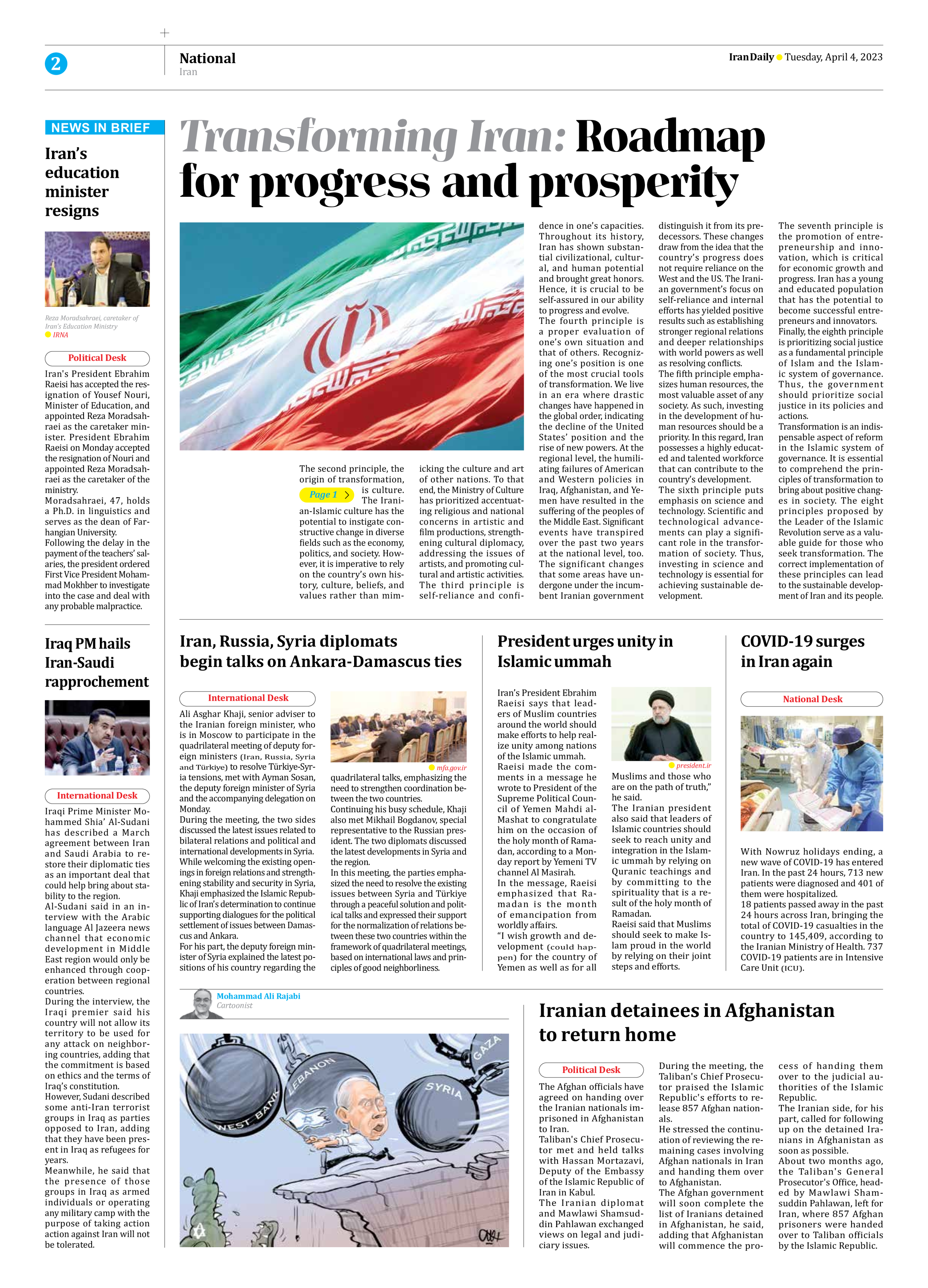
Transforming Iran: Roadmap for progress and prosperity
Page 1
The second principle, the origin of transformation, is culture. The Iranian-Islamic culture has the potential to instigate constructive change in diverse fields such as the economy, politics, and society. However, it is imperative to rely on the country’s own history, culture, beliefs, and values rather than mimicking the culture and art of other nations. To that end, the Ministry of Culture has prioritized accentuating religious and national concerns in artistic and film productions, strengthening cultural diplomacy, addressing the issues of artists, and promoting cultural and artistic activities.
The third principle is self-reliance and confidence in one’s capacities. Throughout its history, Iran has shown substantial civilizational, cultural, and human potential and brought great honors. Hence, it is crucial to be self-assured in our ability to progress and evolve.
The fourth principle is a proper evaluation of one’s own situation and that of others. Recognizing one’s position is one of the most crucial tools of transformation. We live in an era where drastic changes have happened in the global order, indicating the decline of the United States’ position and the rise of new powers. At the regional level, the humiliating failures of American and Western policies in Iraq, Afghanistan, and Yemen have resulted in the suffering of the peoples of the Middle East. Significant events have transpired over the past two years at the national level, too. The significant changes that some areas have undergone under the incumbent Iranian government distinguish it from its predecessors. These changes draw from the idea that the country’s progress does not require reliance on the West and the US. The Iranian government’s focus on self-reliance and internal efforts has yielded positive results such as establishing stronger regional relations and deeper relationships with world powers as well as resolving conflicts.
The fifth principle emphasizes human resources, the most valuable asset of any society. As such, investing in the development of human resources should be a priority. In this regard, Iran possesses a highly educated and talented workforce that can contribute to the country’s development.
The sixth principle puts emphasis on science and technology. Scientific and technological advancements can play a significant role in the transformation of society. Thus, investing in science and technology is essential for achieving sustainable development.
The seventh principle is the promotion of entrepreneurship and innovation, which is critical for economic growth and progress. Iran has a young and educated population that has the potential to become successful entrepreneurs and innovators.
Finally, the eighth principle is prioritizing social justice as a fundamental principle of Islam and the Islamic system of governance. Thus, the government should prioritize social justice in its policies and actions.
Transformation is an indispensable aspect of reform in the Islamic system of governance. It is essential to comprehend the principles of transformation to bring about positive changes in society. The eight principles proposed by the Leader of the Islamic Revolution serve as a valuable guide for those who seek transformation. The correct implementation of these principles can lead to the sustainable development of Iran and its people.







